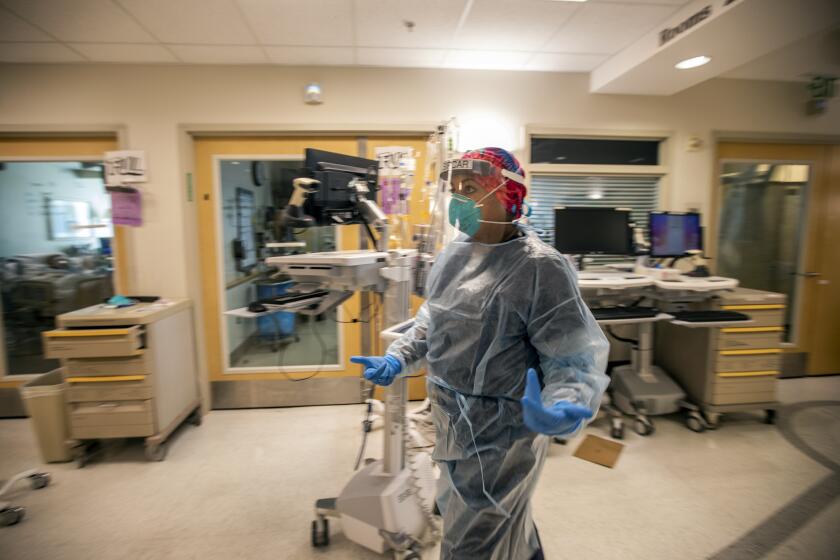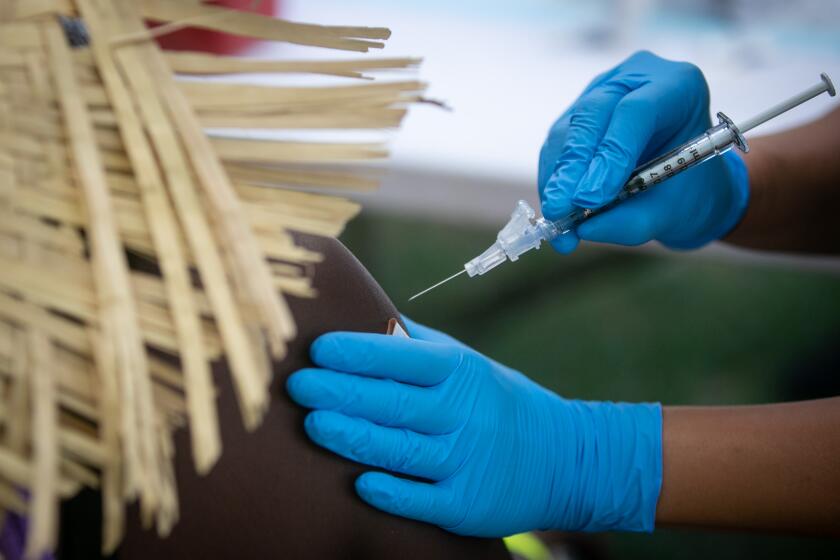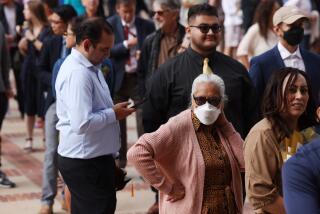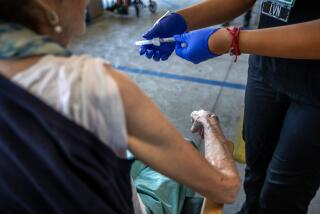Average age of Californians dying of COVID-19 getting younger
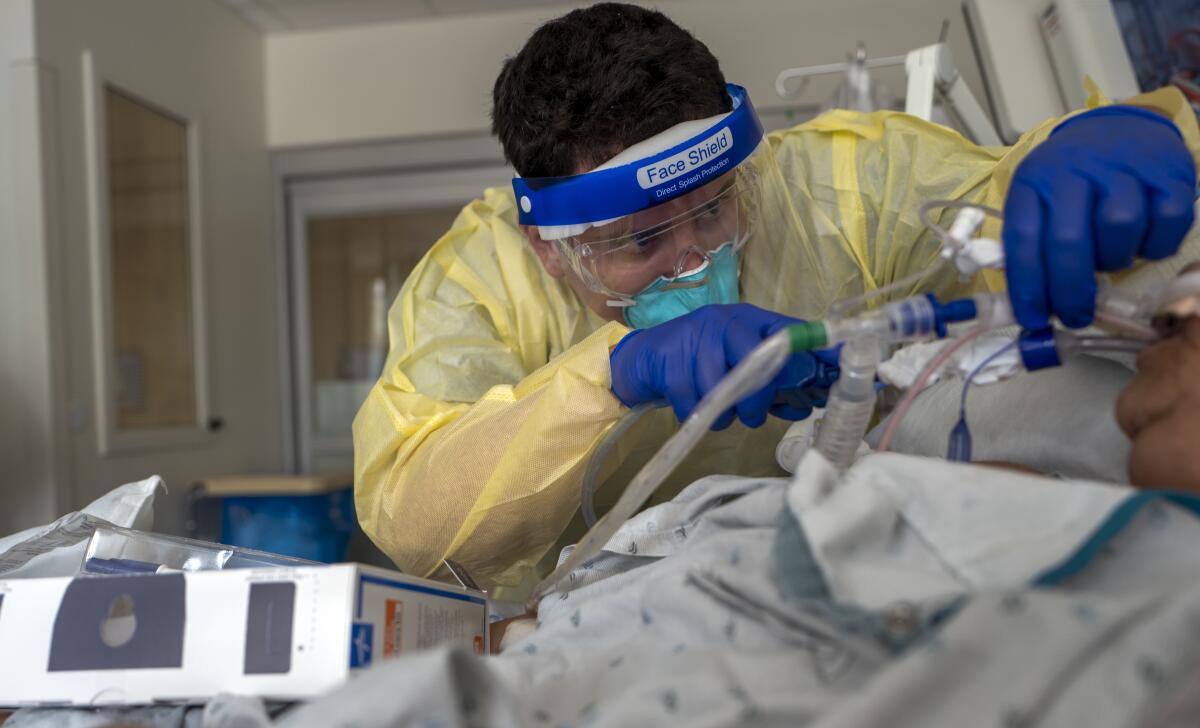
The average age of Californians dying of COVID-19 is increasingly younger in what officials say is another example of the state’s vaccination gap.
Over the course of the pandemic in California, the average age of people who have died from COVID-19 is 73. But since April, the average age of COVID-19 victims is 67. And since August, the average age is 66, according to data from the California Department of Public Health.
State health officials said the decrease in the average age of those dying from COVID-19 is likely related to lower vaccination rates among younger adults.
While 86% of Californians ages 50 to 64 have received at least one dose of vaccine, as have 81% of California seniors, only 76% of younger adults have received such a shot, and 63% of teenagers and adolescents ages 12 to 17.
Unvaccinated and relatively healthy people were more likely to be hospitalized than their vaccinated counterparts, according to new L.A. County data.
The gender gap of COVID-19 deaths is also worsening.
A year ago, in September 2020, 54.6% of COVID-19 deaths were among men. But in August, that number was 58.9%.
Men are less likely to get vaccinated. They have received only 47.6% of all vaccines administered in the state, despite constituting 49.7% of California’s population of 12 and older.
Data from Los Angeles County show how the risk of dying from COVID-19 has increased in recent weeks among adults of all age groups who are unvaccinated.
In summer’s early weeks among unvaccinated L.A. County adults 49 and younger, the death rate was close to zero, but more recently, two have died for every 100,000 people in this group on a weekly basis.
Among every 100,000 unvaccinated L.A. County residents 50 and older, the death rate has increased from five fatalities a week in mid-July to as high as 18 in August.
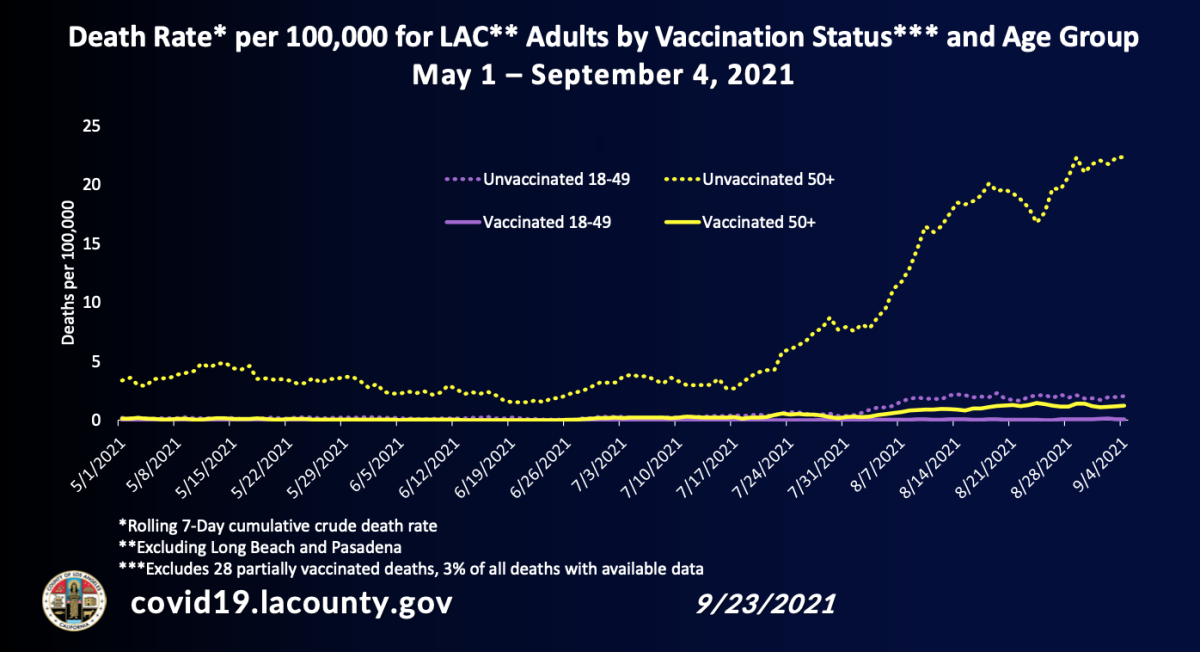
L.A. County has an estimated 4.36 million residents between the ages of 18 and 49 and an estimated 3.55 million adults 50 and older.
Overall, California has reported big drops in cases and hospitalizations. There was a summer surge, fueled in large part by the Delta variant, but the curve has begun to flatten in many parts of the state, which now has the lowest coronavirus case rate in the nation.
California also has higher vaccination rates than some states hit hard by the summer surge. Officials say unvaccinated Californians continue to be infected at higher rates than their vaccinated counterparts
On Thursday, California unveiled an aggressive new vaccination push.
Officials announced a COVID-19 Vaccine Action Plan hours before the director of the U.S. Centers for Disease Control and Prevention, Dr. Rochelle Walensky, said a third Pfizer-BioNTech dose should be given to those 65 and older, residents in long-term care settings, and those age 50 to 64 with underlying medical conditions at least six months after receiving their initial series of vaccinations.
The CDC also said younger adults with underlying medical conditions may get a booster, as well as adults age 18 to 64 who are at increased risk for exposure to the coronavirus because of occupational or institutional settings.
The CDC recommendations apply only to people who received the Pfizer vaccine.
“We will address, with the same sense of urgency, recommendations for the Moderna and J&J vaccines as soon as those data are available,” Walensky said in a statement.
One day after the FDA authorized offering booster shots of Pfizer’s COVID vaccine, California unveils a plan to ramp up inoculation rates.
While more recommendations from state officials are necessary before a third dose of vaccine is distributed widely to people in those categories, officials say they’re preparing now to make sure they’re ready.
“We are working hard to make sure not only are we prepared to provide it, but those who are eligible know that they’re eligible and know when the time is right,” California Health and Human Services Secretary Dr. Mark Ghaly said during a briefing.
More to Read
Sign up for Essential California
The most important California stories and recommendations in your inbox every morning.
You may occasionally receive promotional content from the Los Angeles Times.
